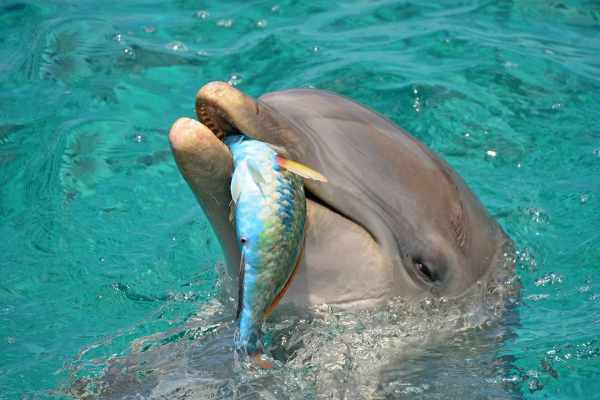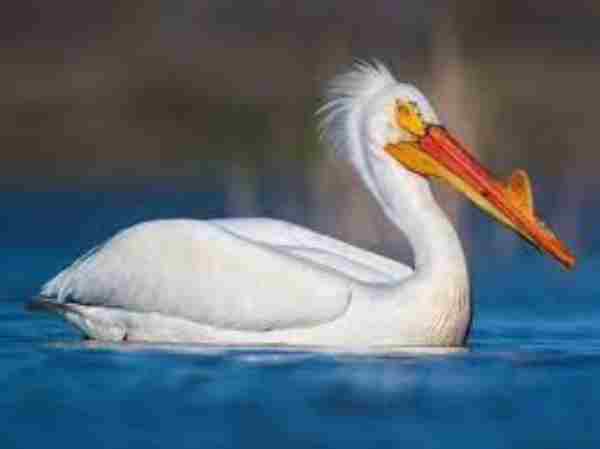Octopuses, with their remarkable intelligence, shape-shifting abilities, and enigmatic behaviors, have long captivated the human imagination. These cephalopods, found in oceans across the globe, are not just marvels of the deep but also crucial players in marine ecosystems. In this comprehensive article, we will delve into the intricate world of What Animals Eat Octopus, its ingenious defense mechanisms, and the pressing need for conservation efforts to safeguard these remarkable creatures.
Table of Contents

Octopus Predation
Brief Overview of Octopuses:
Octopuses belong to the class Cephalopoda, a group of marine animals characterized by their soft bodies, prominent heads, and tentacled arms. What sets octopuses apart are their keen problem-solving abilities, complex nervous systems, and the ability to adapt swiftly to changing environments.
The Importance of Understanding What Animals Eat Octopus:
To truly appreciate octopuses and their role in marine ecosystems, we must first understand the predators that threaten them. Octopuses occupy a critical position in the food web, and comprehending the dynamics of predator-prey interactions is essential for a holistic view of oceanic ecosystems.
Overview of the Octopus Diet:
Octopuses are carnivorous opportunists, displaying a wide range of culinary preferences. Their diet encompasses a diverse array of prey, including crustaceans, mollusks, fish, and even other cephalopods. This adaptability underscores their vital role in maintaining the balance of marine species.
The Types of Food Octopuses Prefer:
Octopuses exhibit a pronounced preference for live prey, especially those with soft bodies. Their favored meals often include crabs, shrimp, and small fish, showcasing their selective hunting strategies.
Octopus Hunting and Feeding Behavior:
Octopuses are ambush predators par excellence. Their hunting repertoire includes a variety of tactics, from patient stalking to lightning-fast strikes. We’ll explore the intricacies of their hunting behavior and the strategies they employ to secure their meals.
Natural Predators of Octopuses:
Octopuses, despite their formidable hunting skills, are not invincible. They face a range of natural predators, each with its own set of tactics for capturing these elusive cephalopods. We’ll delve into the world of octopus predators, including marine mammals, large fish species, and sea birds, and the strategies these animals employ to catch their prey.
Marine Mammals:
Dolphins:

Dolphins, known for their high intelligence and hunting prowess, are skilled octopus predators. They use their echolocation abilities to locate octopuses hiding in crevices or sand. Once found, dolphins can employ various tactics to capture their prey, such as using their speed and agility to chase down the octopus or stunning it with a powerful slap from their tail flukes.
Seals and Sea Lions:

Pinnipeds like seals and sea lions are formidable octopus hunters. They are excellent swimmers and can pursue octopuses into their hiding spots. Seals and sea lions use their strong jaws to grasp and consume octopuses, often in a matter of seconds.
Whales:

Some species of baleen whales, like humpback whales, are known to feed on octopuses. They use their baleen plates to filter small prey from the water, and octopuses are sometimes caught in these filters along with other planktonic organisms.
Sharks:

Sharks, with their sharp teeth and keen senses, are formidable octopus predators. Species like the great white shark are known to feed on octopuses when they encounter them. Sharks use their powerful bite to incapacitate their prey quickly.
Groupers:

Groupers are large, predatory fish that are skilled at hunting octopuses. They often ambush their prey, lunging from their hiding spots to catch octopuses in a surprise attack.
Barracudas:

Barracudas are swift and agile predators that can quickly capture octopuses. Their sharp teeth make short work of an octopus’s soft body.
Sea Birds:

Seagulls: Seagulls are opportunistic feeders and will scavenge octopuses floating on the water’s surface or stranded in tidal pools. They use their strong beaks to tear apart octopus flesh.
Pelicans:

Pelicans have large, expandable pouches in their bills that they use to scoop up octopuses and other prey from the water. Once captured, they swallow their prey whole.
Other Cephalopods:

Larger Squid: Some larger species of squid, such as the colossal squid, are known to cannibalize smaller octopuses. These encounters often occur in the deep, dark depths of the ocean, where both cephalopods share their habitat.
Lobsters and Large Crabs:

While not typical predators of octopuses, certain large crustaceans, like lobsters and crabs, may occasionally prey on smaller or juvenile octopuses if they come across them. These encounters are usually opportunistic rather than systematic predation.
How Octopuses Defend Themselves from Predators:
The survival of octopuses depends on their ability to ward off attackers. They have developed a suite of defense mechanisms, including ink secretion, jet propulsion, and camouflage through skin texture and color manipulation. We’ll explore these adaptations in detail and gain insights into how octopuses evade their foes.
Human Predation:
While octopuses have evolved to withstand natural predators, human predation poses a significant threat. Commercial and recreational fishing practices can lead to overexploitation, endangering octopus populations. This section will emphasize the importance of sustainable fishing practices and responsible consumption of these intelligent cephalopods.
Ecological Significance
Octopuses as Ecosystem Architects:
Octopuses play a pivotal role in shaping marine ecosystems. Their predation helps control the populations of various species, preventing the unchecked growth of certain prey species and promoting diversity in underwater communities. We’ll explore the cascading effects of octopus presence or absence on the marine environment.
Octopus Defense Mechanisms:
Octopuses have evolved a myriad of defense mechanisms over millions of years, fine-tuning their survival tactics. In this section, we’ll delve deeper into the mechanics behind ink expulsion, rapid propulsion, and the art of cryptic camouflage. These adaptations are a testament to the octopus’s ingenuity and resilience.
Conservation Efforts:
As human activities increasingly impact marine environments, conservation efforts are more critical than ever. This section will examine the various initiatives and strategies aimed at conserving octopus populations. Topics will include marine protected areas, responsible fishing practices, and public education campaigns to raise awareness about the significance of octopuses in our oceans.
Conclusion:
Octopuses, with their multifaceted lives as predators, prey, and ecosystem engineers, represent a captivating window into the complex world of marine life. Understanding their interactions with predators, their ingenious defense mechanisms, and the urgency of conservation measures is essential to ensure the continued existence of these extraordinary creatures. The mysteries of the deep sea hold many secrets, and octopuses are among its most intriguing inhabitants, deserving our utmost attention and protection.
Reference:
- https://www.georgiaaquarium.org/animal/giant-pacific-octopus/
- https://teara.govt.nz/en/octopus-and-squid/page-3
- https://eldenring.wiki.fextralife.com/Giant+Land+Octopus
A motivated philosophy graduate and student of wildlife conservation with a deep interest in human-wildlife relationships, including wildlife communication, environmental education, and conservation anthropology. Offers strong interpersonal, research, writing, and creativity skills.










